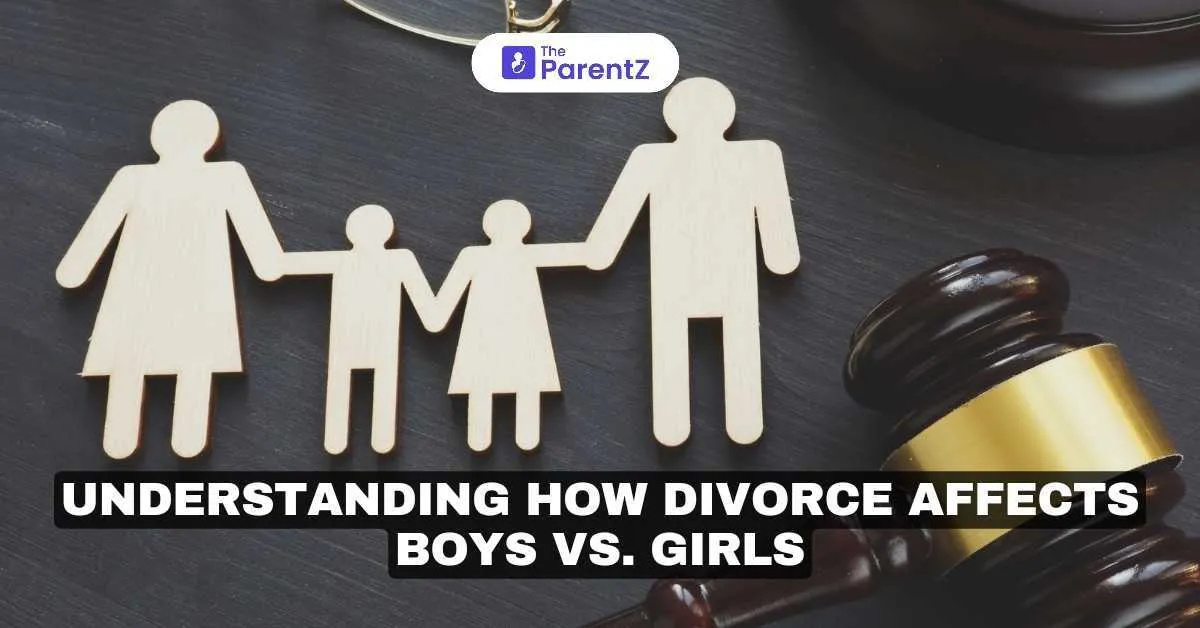Divorce is a life-altering event that can have profound effects on children, influencing their emotional, psychological, and social development. When families face divorce, one of the most challenging aspects is understanding and supporting children through their unique emotional journeys. Research has shown that divorce affects boys vs. girls in distinctly different ways, though individual responses can vary significantly. This comprehensive guide explores these gender-specific reactions and offers practical guidance for parents navigating this challenging transition.
Boys: The Struggle with Anger and Aggression
Research shows that boys are more likely to exhibit externalizing behaviors following a divorce. This means they may act out through aggression or defiance. For instance, a boy might become combative at school or engage in risky behaviors such as substance abuse or delinquency. These reactions often stem from feelings of anger and frustration related to the family disruption.
Boys may also struggle with feelings of abandonment, particularly if they have less contact with their fathers post-divorce. This lack of paternal involvement can lead to lowered self-esteem and increased feelings of depression. For example, a boy who once enjoyed regular weekend outings with his father may feel lost and unworthy when those interactions diminish.
Girls: The Pressure to Mature
In contrast, girls often internalize their feelings during a divorce. They may feel compelled to take on adult responsibilities or provide emotional support to their mothers, which can lead to premature emotional maturity. This pressure can manifest in various ways; for instance, girls might withdraw socially or develop anxiety about their academic performance.
Moreover, studies indicate that girls from divorced families may experience an earlier onset of puberty and associated physical changes. These changes can be overwhelming if they are not emotionally prepared for them. A girl who feels she must mature quickly may also engage in risky behaviors such as early sexual activity to assert her newfound independence.
Long-Term Effects and Development
Understanding how divorce affects boys vs. girls over time is crucial for providing appropriate support:
Long-Term Effects on Boys
Relationship Development
- May struggle with trust in romantic relationships
- Higher risk of behavioral problems in adolescence
- More likely to experience difficulty expressing emotions
Identity Formation
- Often struggle with male role model identification
- May develop uncertainty about masculinity
- Risk of adopting negative male stereotypes
Long-Term Effects on Girls
Relationship Patterns
- May develop a fear of abandonment
- More likely to seek early romantic relationships
- Higher risk of choosing unhealthy relationships
Self-Image Development
- May struggle with self-worth
- More likely to assume caretaking roles
- Risk of developing perfectionist tendencies
Parent-Child Dynamics
The impact of divorce affects boys vs. girls differently in their relationships with each parent:
Boys' Parent Relationships
With Mother
- May challenge maternal authority
- Need for maintaining clear boundaries
- Important to validate emotions while setting limits
With Father
- Often experience more significant disruption
- May feel abandoned or rejected
- Need for consistent contact and involvement
Girls' Parent Relationships
With Mother
- May become overly enmeshed
- Risk of taking on a friend/confidante role
- Need to maintain appropriate parent-child boundaries
With Father
- Often experience anxiety about the relationship
- May idealize absent father
- Need for regular, quality interaction
Why These Differences Occur
The differing impacts of divorce on boys vs. girls can be attributed to several factors:
- Socialization: Boys are often socialized to express emotions through action rather than words. This cultural norm may lead them to externalize their feelings as anger or aggression instead of seeking help or talking about their emotions.
- Parental Relationships: The nature of the relationship with each parent post-divorce plays a crucial role in how children cope. Boys tend to benefit significantly from maintaining a strong bond with their fathers; without this connection, they may struggle more than girls do.
- Coping Mechanisms: Girls are generally encouraged to express their feelings verbally and seek social support from peers, which can aid in processing emotions related to divorce. In contrast, boys may feel societal pressure to "tough it out," leading to unaddressed emotional turmoil.
What If These Differences Don’t Happen?
While many children will exhibit behaviors typical for their gender following a divorce, it’s essential to recognize that not all boys will act out aggressively, nor will all girls mature prematurely. Individual personality traits, resilience levels, and the overall family environment play significant roles in how each child copes with divorce.
For example, some boys might channel their feelings into sports or creative outlets rather than aggression, while some girls might find solace in academic pursuits rather than feeling pressured to take on adult responsibilities.
Conclusion
The way divorce affects boys vs. girls can vary significantly, and understanding these differences is crucial for providing appropriate support. Remember that while gender-specific patterns exist, each child is unique and may not follow typical patterns. The key is remaining attentive to your child's individual needs while being aware of potential gender-specific challenges they might face.
Focus on maintaining open communication, providing consistent support, and seeking professional help when needed. With understanding, patience, and appropriate support, both boys and girls can successfully navigate the challenges of divorce and develop into healthy, well-adjusted adults.






